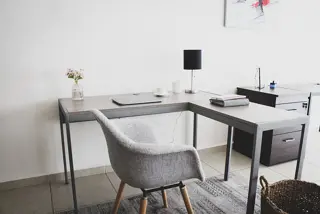 The COVID-19 pandemic has fundamentally reshaped Mumbai’s residential market, pushing a major shift toward homes with dedicated workspaces as non-negotiable priorities. Buyers now see integrated work areas as essential, not just extras, reflecting changing lifestyle and professional needs. This shift spans generations, appealing equally to millennial professionals and established executives looking for hybrid work arrangements.
The COVID-19 pandemic has fundamentally reshaped Mumbai’s residential market, pushing a major shift toward homes with dedicated workspaces as non-negotiable priorities. Buyers now see integrated work areas as essential, not just extras, reflecting changing lifestyle and professional needs. This shift spans generations, appealing equally to millennial professionals and established executives looking for hybrid work arrangements.
Pandemic-Driven Demand Acceleration
The past three years have seen a surge in demand for multi-purpose living spaces as remote work blends traditional boundaries between home and office. Key drivers include:
- Hybrid Work Necessities: 32% of Indian professionals now prioritize homes with self-contained workspaces to avoid commuting challenges.
- Amenities Over Size: Unlike before the pandemic, buyers now value workspace integration over sheer square footage, especially in crowded cities.
- Traffic Anxiety Reduction: Developers report growing interest in properties near workplaces to cut down on grueling commutes.
Design Innovations in Post-Pandemic Homes
Architects and builders are responding to new demands through creative space optimization strategies:
- Dedicated Work Pods: Solutions for smaller flats, featuring noise-insulated desks or convertible furniture.
- Flexible Open Layouts: Large windows and decking areas becoming standard to enhance airflow and workspace comfort.
- Built-In Co-Working Hubs: New projects incorporate communal workspaces with high-speed internet and meeting facilities.
Value Implications for Mumbai Properties
This shift is already influencing property valuation metrics:
| Factor | Pre-Pandemic Prioritization | Current Market Realities |
|---|---|---|
| Location | Premium for prime business districts | Added value for workplace-proximity properties |
| Space Configuration | Emphasis on bedroom count | Focus on functional work areas |
| Amenities | Swimming pools/gym | Internet-ready co-working zones |
Developers are countering price sensitivity through subvention schemes, allowing buyers to stagger payments for homes with premium work amenities.
Developer Strategies Targeting Hybrid Workers
Leading builders like the Lodha Group and Zen Realty India have repositioned their portfolios to address evolving preferences:
- Micro-Living Concepts: Compact homes with efficient workspace design for urban professionals.
- Tech-Integrated Homes: IoT enabled features and smart home systems support remote work.
- Family-Centric Workspaces: Inclusion of children’s study areas and creche facilities within development complexes.
The post-pandemic real estate landscape now resembles a workspace-centric ecosystem, where physical proximity to employment hubs and amenity-rich spaces define value perceptions. As Mumbai’s commercial clusters expand outward, expect this trend to further influence peripheral development patterns and social infrastructure planning.